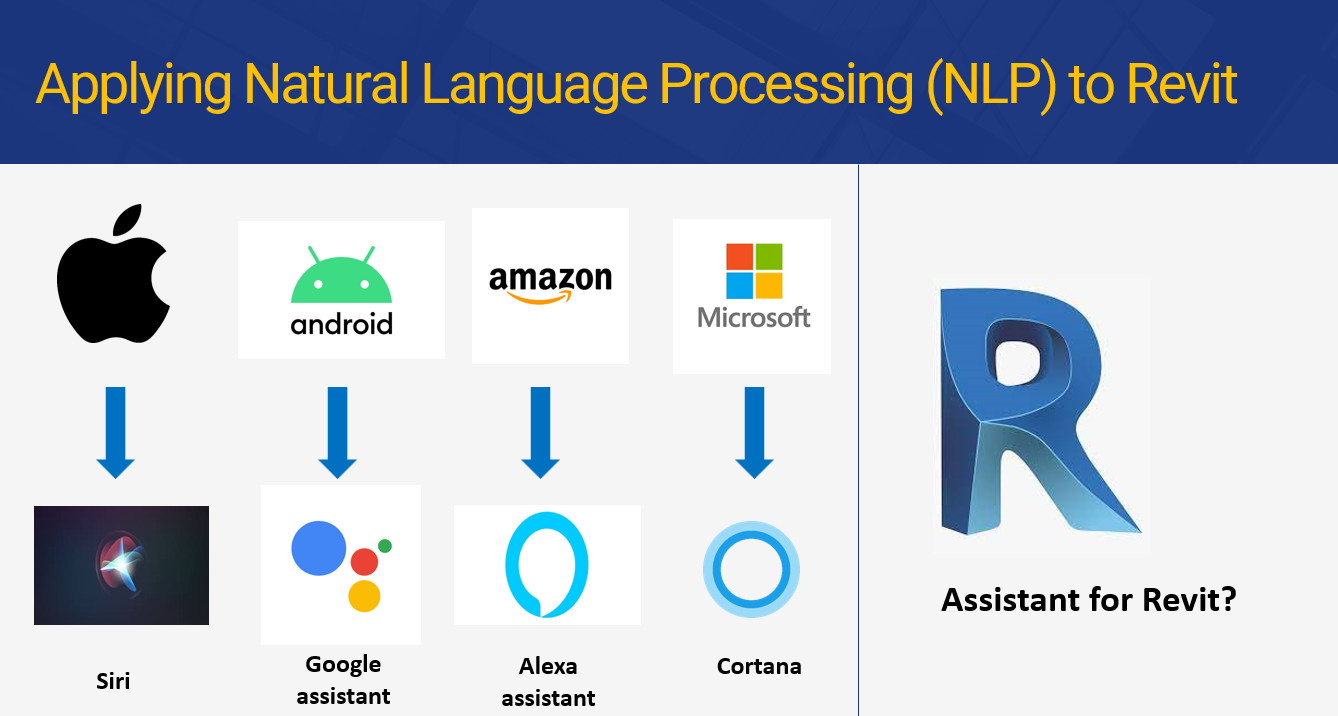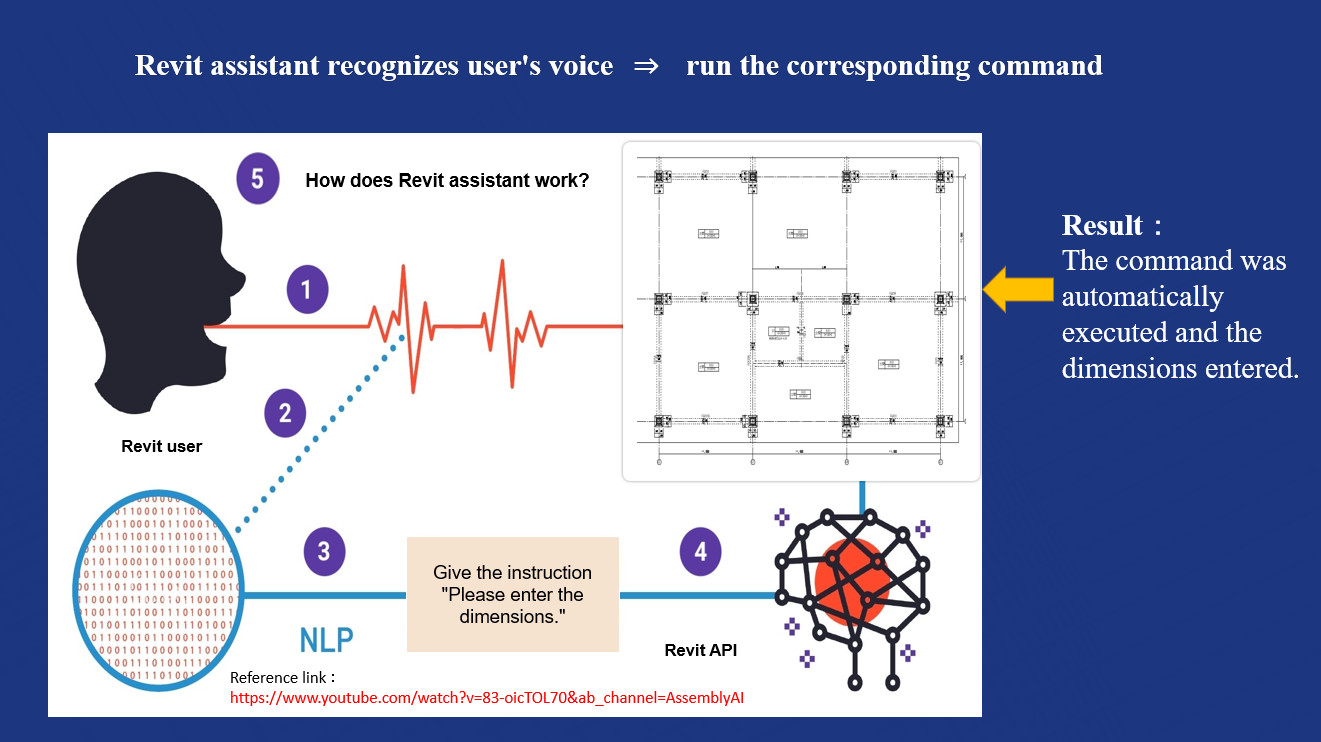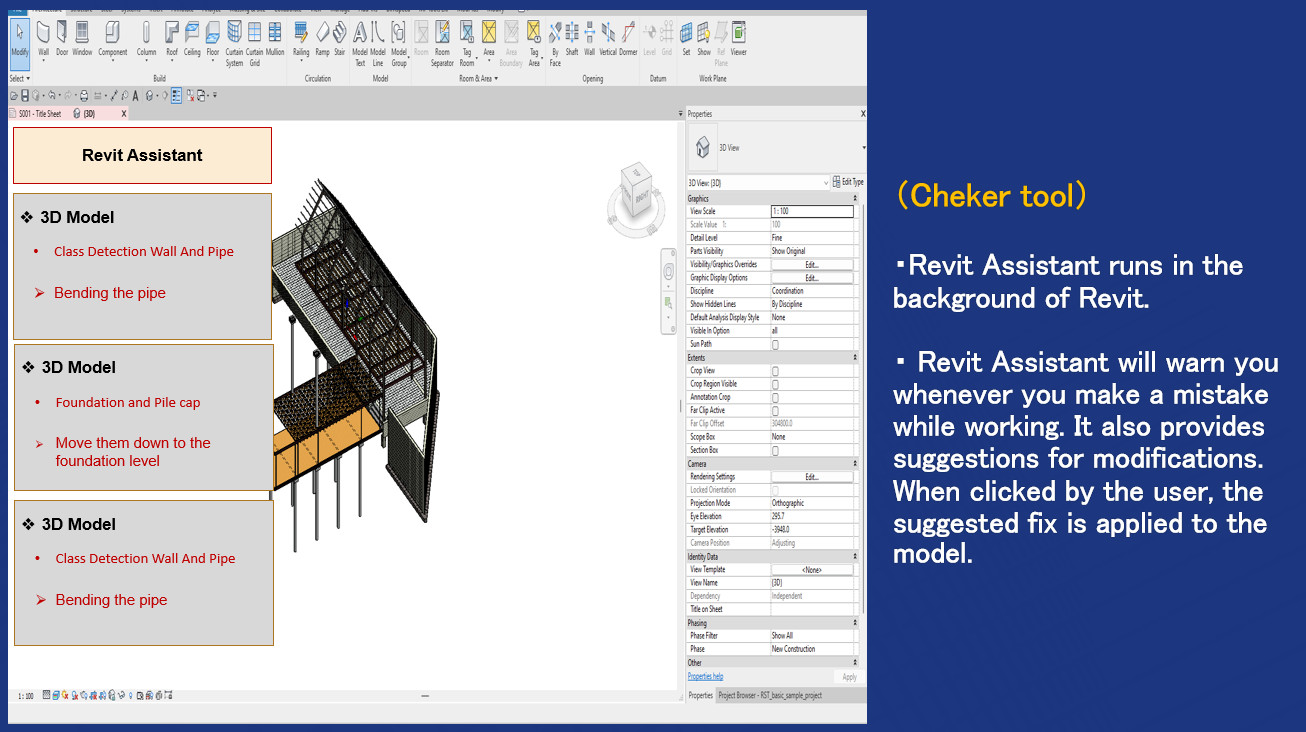R&D
In the construction industry, addressing labor shortages and improving operational efficiency have become urgent challenges. By integrating ICT into construction, it is not only possible to mechanize and digitize processes, but also to enable the execution of advanced, highly complex tasks that are beyond human capability.
With a team of experienced IT engineers who have worked on numerous projects, our research and development services can support your company in developing cutting-edge technologies that enhance the efficiency of design, simulation, construction, and more.
With a team of experienced IT engineers who have worked on numerous projects, our research and development services can support your company in developing cutting-edge technologies that enhance the efficiency of design, simulation, construction, and more.
Introduction of Research Topics
Applying Natural Language Processing (NLP) in Revit
Natural Language Processing (NLP) refers to the ability of computers to process human (natural) language and extract meaningful content from text or speech.
The use of Natural Language Processing (NLP) to understand user commands and execute appropriate tasks is no longer rare. It can be commonly seen in devices such as smartphones, tablets, and smart TVs through virtual assistants like Siri (Apple), Google Assistant (Android – Google), and Cortana (Microsoft). Moreover, in smart homes, many electronic devices and appliances are now capable of operating based on voice commands from the homeowner.
In this research project, we experimented with applying Natural Language Processing (NLP) to Revit by developing a virtual assistant (Revit Assistant) capable of interpreting user commands and performing specific operations within the Revit environment.
Revit Assistant is capable of recognizing and understanding user instructions, then executing the appropriate command to perform the desired operation.
Natural Language Processing (NLP) refers to the ability of computers to process human (natural) language and extract meaningful content from text or speech.
The use of Natural Language Processing (NLP) to understand user commands and execute appropriate tasks is no longer rare. It can be commonly seen in devices such as smartphones, tablets, and smart TVs through virtual assistants like Siri (Apple), Google Assistant (Android – Google), and Cortana (Microsoft). Moreover, in smart homes, many electronic devices and appliances are now capable of operating based on voice commands from the homeowner.
In this research project, we experimented with applying Natural Language Processing (NLP) to Revit by developing a virtual assistant (Revit Assistant) capable of interpreting user commands and performing specific operations within the Revit environment.
Revit Assistant is capable of recognizing and understanding user instructions, then executing the appropriate command to perform the desired operation.

For example, when the user gives the command “Enter dimensions”, the speech recognition API is triggered and converts the spoken instruction into text. Based on the converted text, the system identifies and executes the corresponding command — in this case, the automated dimension input command developed by our team. As a result, dimensions are automatically inserted into the drawing within the Revit environment.

2. Checker tool
Revit Assistant is designed to monitor user operations and, when an error is detected, will display a warning message to notify the user of the mistake and provide a suggested correction. If the user wishes to fix the issue, simply clicking on the suggested fix will prompt Revit Assistant to automatically correct the error based on the recommendation. This helps minimize mistakes and saves time in the correction process.
Revit Assistant is designed to monitor user operations and, when an error is detected, will display a warning message to notify the user of the mistake and provide a suggested correction. If the user wishes to fix the issue, simply clicking on the suggested fix will prompt Revit Assistant to automatically correct the error based on the recommendation. This helps minimize mistakes and saves time in the correction process.


